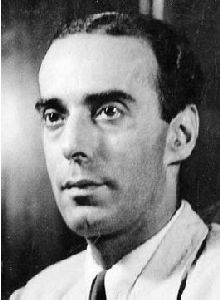Minoo Masani | |
|---|---|
 | |
| Indian Ambassador to Brazil | |
| In office May 1948 – May 1949 | |
| President | Rajendra Prasad |
| Succeeded by | Joginder Sen Bahadur |
| Member of Parliament, Lok Sabha | |
| In office 1957–1962 | |
| Preceded by | Abdul Ibrahim |
| Succeeded by | P. K. Ghosh |
| Constituency | Ranchi (Lok Sabha constituency) |
| In office 1967–1971 | |
| Preceded by | U. N. Dhebar |
| Succeeded by | Ghanshyambhai Oza |
| Constituency | Rajkot (Lok Sabha constituency) |
| Personal details | |
| Born | Minocher Rustom Masani 20 November 1905 Mumbai, Maharashtra, India |
| Died | 27 May 1998 (aged 92) Mumbai, Maharashtra, India |
| Political party | Swatantra Party |
| Other political affiliations | Indian National Congress |
| Occupation | Journalist, Politician, Writer, Diplomat |
| Known for | Promotion of liberal economy |
| Part of a series on |
| Liberalism |
|---|
 |
Minocher Rustom "Minoo" Masani (20 November 1905 – 27 May 1998) was an Indian politician, a leading figure of the erstwhile Swatantra Party. He was a three-time Member of Parliament, representing Gujarat's Rajkot constituency in the second, third and fourth Lok Sabha. A Parsi, he was among the founders of the Indian Liberal Group think tank that promoted classical liberalism.[1]
He served as a member of the Constituent Assembly of India, representing the Indian National Congress. He introduced the proposal for a uniform civil code to be included in the Constitution of India in 1947, which was rejected.[2]
His public life began in the Mumbai Municipal Corporation, where he was elected as Mayor in 1943. He also became a member of the Indian Legislative Assembly.[3] In August 1960, he along with C. Rajagopalachari and N. G. Ranga formed the Swatantra Party, while international Communism was at its peak.
He died, aged 92, in his home at Breach Candy, Mumbai. His funeral was held at Chandanwadi.[4]
- ^ Friedrich-Naumann-Stiftung, ed. (1999). Liberal priorities for India in the 21st century. Project for Economic Education. p. 18. Retrieved 27 May 2013.
- ^ Narain, Vrinda (2001). Gender and Community: Muslim Women's Rights in India By Vrinda Narain. University of Toronto Press. p. 57. ISBN 9780802048691.
- ^ Cite error: The named reference
Expresswas invoked but never defined (see the help page). - ^ "Minoo Masani dead". Rediff.com. 27 May 1998. Retrieved 24 February 2018.